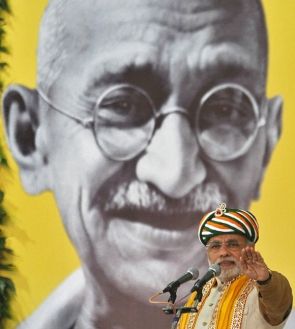 The Indian attitude to sanitation is the inverse of the attitude to sex: it's OK to discuss sanitation, but it's not OK to actually indulge in it, says Devangshu Datta
The Indian attitude to sanitation is the inverse of the attitude to sex: it's OK to discuss sanitation, but it's not OK to actually indulge in it, says Devangshu Datta
Akbar is rumoured to have once asked the navratnas of his court what the greatest pleasure in the world was. The stock answers came back: wealth, power, women, food, wine and so on, with the emperor's own contribution being hunting. Birbal was the outlier; he asserted that the greatest pleasure in the world was surely a good bowel movement.
The Great Mughal demurred. But the next day, while they were out hunting, Birbal slipped a laxative into Akbar's cuppa. In the throes of increasing discomfort, the monarch was forced to halt the slaughter of innocent beasts and sidle into the bushes. When he returned much relieved, he conceded Birbal's point.
The story may be apocryphal, but it is the first instance of potty featuring in India's policy discourse. It is not, of course, the last. Indians enjoy discussing sanitation and bathroom habits almost as much as they enjoy discussing the vagaries of the Indian Railways. In fact, any description of an overnight train journey is incomplete without at least one Naipaul-ean reference to the platoons of naked behinds lined up next to the tracks in the morning.
Loos and bowel movements feature in excruciating detail in the Mahatma's writings; he never travelled without his lota and enema kit. He also spent a great deal of time haranguing his family and acquaintances into cleaning loos. It was a deeply political act.
Nobody likes cleaning loos and the Mahatma was exercised by the fact that large numbers of Indians were doomed by heredity to clean loos and not allowed to try doing anything else. He believed that if high castes barged into the domain of loo cleaning, it would, somehow, lead to hereditary loo cleaners being allowed to adopt traditionally high-caste professions. Sadly, it didn't work out that way.
The Indian attitude to sanitation is the inverse of the attitude to sex: it's OK to discuss sanitation, but it's not OK to actually indulge in it. There was little heed paid to it in historical architecture. An outhouse or a slit trench was deemed sufficient and the attached bathroom was an import of the latter days of the Raj.
We marvel at the beauty of Mughal gardens and the wondrous Mughal baths but not at the Mughal latrines, which were pokey little holes. There is also a noticeable shortage of historic facilities in all our fabulous places of worship.
This is odd, given that the Indus Valley civilisation had working flush toilets way back in 2000 BCE. But those designs were lost along with the Harappans and nobody reinvented the water closet. Why bother when you can have manual scavengers instead?
About 47 per cent of Indian households had indoor toilets in 2011, according to the Census. That's a big improvement from 36 per cent in 2001. But it is woeful in absolute terms. Over 600 million Indians defecate in the open. There are strong correlations between disease, stunted growth and poor sanitation. It may account for up to half of the under-development of Indian children compared to their age cohorts in even poorer regions of Africa.
Jairam Ramesh pointed out that mobile phones, which had 59 per cent household penetration in 2011, were accorded higher priority than loos. Since over 90 per cent of households have access to water and an indoor toilet costs about as much as a handset, he was right.
But why are loos accorded lower priority? Behavioural scientists may want to get down and dirty with the data in this under-researched field.
In 2012, Ramesh was also attacked by the Hindutva brigade for suggesting that building toilets might be more important than building temples. Far-right media organisations wrote stern editorials pillorying him for his lack of faith; goons eased their bladders on the walls of his residence. Now the messiah of the Ram-bhakts, Narendra Modi, has said exactly the same thing. Presumably, it will now be his turn to be pilloried for putting potty before piety.












 © 2025
© 2025